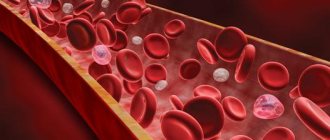If you notice that your urine smells like ammonia, you need to figure out the reasons, of which there may be several:
- have not urinated for a long time,
- ate spicy foods
- there are bacteria in the urine
- drank little fluid.
In order for the body to rid itself of toxins, a person needs to consume about three liters of liquid per 24 hours, 1.6 liters of which is plain water. Drinking less than the recommended amount of water on a regular basis can lead to a build-up of waste products, causing your urine to smell like ammonia. But, often this symptom indicates problems with the body. Therefore, you should immediately do a urine test and see a doctor.
Physiological reasons
A natural change in the smell of urine occurs with frequent consumption of spicy foods with large amounts of garlic, pepper and horseradish. In addition, the causes of ammonia odor may be:
- Dehydration of the body. Lack of fluid leads to prolonged absence of urination. During this period, urine becomes concentrated. A large number of chemicals accumulate in it, including ammonia.
- Protein diets. Complex organic matter of animal and plant origin is broken down by the digestive system into amino acids. They, in turn, release ammonia. If protein foods predominate in the diet, then the urine has a specific odor.
- The onset of menopause. In women during the decline of reproductive function, estrogen production decreases. The lack of this hormone leads to disturbances in the structure of the mucous membranes of the urinary and genital organs.
- Pregnancy period. When carrying a child, progesterone is produced in the female body. An increase in its level provokes a narrowing of the ureter, urine is delayed, and its concentration increases.
Due to their physiological characteristics, men have less risk of smelling sharp and unpleasant urine.
What does ammonia smell like?
The gas has a sharp, specific odor, similar to the aroma of rotten eggs. To get an idea of what it smells like, you can smell ammonia, which is an ammonia solution.
When trying to sniff ammonia, you must be careful, keeping the open bottle away from your nose. Acute inhalation of vapors can cause headaches, watery eyes and nausea.
There is always a small amount of ammonium phosphate in the urine. If urine sits for a long time, the element begins to decompose. A visit to a public toilet that is rarely cleaned can give you an idea of the ammonia odor.
Pathological causes
If the urine smells unpleasant and there are blood impurities in its structure, this indicates the presence of serious diseases:
- Pyelonephritis is a nonspecific inflammation of the kidneys of bactericidal origin. In addition to the smell of ammonia, the sick person has a fever and lumbar pain. Symptoms of pyelonephritis also include chills, nausea, vomiting, and increased sweating.
- Cystitis is an infection of the mucous membrane of the bladder. It manifests itself as a frequent urge to urinate without satisfying the need, with pain in the ureter. Urine becomes dark in color and has an unpleasant odor.
- Diabetes. In this disease, due to the lack of sufficient insulin, the body uses fat to break down glucose. During this process, ketone bodies are formed and excreted in the urine.
- Vaginitis is an inflammatory process that affects the vaginal mucosa. As a result of the activity of pathogenic bacteria and fungi, a strong smell of urine occurs. A girl in this condition experiences pain in the genitals and when urinating.
- Urethritis is inflammation of the urethra. The disease occurs in men and women with approximately the same frequency. The urine contains impurities of pus and blood.
The chemical structure of urine changes due to metabolic disorders and medications. Urine stinks in men and women with sexually transmitted diseases.
Urine smells like ammonia - treatment
Treatment will depend on the causes. Lifestyle changes and diet will help make the odor go away.
Drinking water is an easy way to stay hydrated. Drinking 6-8 glasses of water every day will help reduce dehydration. A person who notices that their urine is dark in color and smells like ammonia should start drinking plenty of water.
Reducing your intake of vitamins and medications may also reduce urine odor.
Most people urinate rarely (less than 6 times a day). But urine that is retained for a long time can become concentrated and have an unpleasant odor. Frequent urination helps reduce the ammonia odor.
Personal hygiene will help get rid of the smell. It is necessary to cleanse the genitals well.
Ammonia smell in children
In an infant, the smell of ammonia in the urine may indicate a deficiency of vitamin D. Its deficiency is expressed not only by bad-smelling urine, but also by increased sweating, slow development and growth. In this case, the child develops bald spots on the back of the head. This is due to the lack of sufficient nutrition of the hair follicles.
The child’s body reacts violently to any external and internal changes. Thus, a change in diet can color the urine in a non-specific color and change its aroma. This happens when changing artificial formula and during the introduction of a new product into complementary foods. If the mother is breastfeeding the baby and includes exotic or forbidden foods in the diet, then the urine will smell appropriate. To normalize the situation, a woman will have to adjust her diet and exclude dangerous components from the menu.
But the most common cause of a repulsive odor in a child is insufficient hygiene. Dirty underwear combined with sweat provokes the proliferation of pathogenic bacteria. In the absence of regular water procedures, urine acquires a foul odor. In addition, a child’s skin absorbs stale odors. Therefore, parents should monitor the cleanliness of the baby’s skin and often change items of underwear.
The fluid secreted by the kidneys may change its odor if low-quality diapers are used. Cheap copies of children's products do not allow air to pass through. The child’s genitals and buttocks sweat and smell, which affects the odor of the urine. This effect is especially noticeable after changing the diaper in which the baby slept all night.
Rotten fish smell: liver should be checked
Some people ask why men's urine smells fishy. Most likely, this is due to an increase in the concentration of a substance such as trimethylamine in the body. Usually in such cases, an unpleasant odor comes from both the body and all its waste products.
Many people believe that this is due to sexually transmitted diseases, but in fact this is not the case. The problem usually lies in the fact that for some reason the production of liver enzymes is disrupted. At an early stage, this is a relatively harmless condition, but if you do not pay enough attention to its treatment, over time it will lead to intoxication of the body and disruption of the gastrointestinal tract.
There is no specific treatment in this case. The only way out is to follow a special diet in which fish, meat, legumes (beans, peas, chickpeas, etc.) and even eggs are excluded from the diet, that is, those products that are converted into trimethylamine during chemical reactions in the body.
What to do
If the smell of ammonia is detected in children, then it is necessary to analyze the situation and determine the accompanying symptoms. If you suspect a vitamin D deficiency, you should visit a pediatrician, who will make an accurate diagnosis and prescribe a drug with this substance. If a new product during complementary feeding causes such a reaction, then it should be discontinued. This reaction means that the child’s body is not yet ready to accept unfamiliar food components. It is important to use high-quality diapers that allow the baby's skin to breathe.
Adult patients will have to undergo tests and go for an ultrasound of the pelvic organs. After identifying the underlying disease, drug therapy with anti-inflammatory and antifungal drugs is prescribed.
Traditional medicine will help speed up treatment for infectious and inflammatory diseases of the kidneys and bladder:
- Currant decoction. Pour 1 tbsp into a container with 250 ml of boiling water. l. dry leaves of the plant. Place in a water bath and boil for 20 minutes. Strain, take 50 ml 3 times a day.
- Rose hip decoction. 2 tbsp. l. pour 250 ml of boiling water over the fruits and boil for 15 minutes. After cooling, leave in a dark place for 12 hours. Take 3 times a day, 100 ml.
- Apple juice. Regular consumption of freshly squeezed juice helps accelerate the removal of toxins and waste from the body.
- Cranberry tincture. Sort and wash 250 g of berries, blend with a blender. Pour 0.5 liters of vodka and 50 ml of water into the resulting mixture, add 1 tbsp. Sahara. Close the jar with a lid and leave in a dark place for 15 days. Strain through cheesecloth, take 2 times a day after meals.
In men and women, a symptom such as an ammonia odor in urine requires timely diagnosis. When a specific disease is identified, a course of effective therapy is prescribed.
How to get rid of ammonia odor
First, you need to identify the reason why your urine smells like ammonia. It is better to get tested immediately if the smell of your urine changes. Collecting urine does not take much time, and laboratory testing of additional fluid parameters will reveal the cause of the deviations.
Depending on the factor that provoked the changes, it is recommended:
- correction of diet and increased fluid intake;
- treatment of pathologies that provoke the release of ammonia compounds in the urine.
If you remove only the smell using traditional recipes or medications, the deviations will not disappear. It is necessary to eliminate the provoking factor: changing diet or lifestyle, treating the disease.
Preventive measures
For the health of the genitourinary system and to prevent changes in the smell of urine, it is necessary to adhere to the following rules of prevention every day:
- adhere to the drinking regime - an adult needs up to 2.5 liters of water daily;
- try not to hold back the urge to urinate;
- take care of body hygiene, especially in intimate places;
- taking medications only as prescribed by a doctor;
- the daily diet is balanced in proteins, fats and carbohydrates;
- exclude unprotected sexual contacts from intimate life;
- give up bad habits and junk food;
- adequate physical activity without overwork.
If the smell of ammonia comes for the first time, then there is no need to worry. It may be that the person simply ate the product that caused such a reaction. In this case, within a few days the urine will acquire its natural aroma. But when the smell does not go away, and signs of inflammation or infection are detected, then it is important to undergo a full diagnosis.
( 70 ratings, average: 4.83 out of 5)
Prevention
To prevent the ammonia smell from appearing, you should carefully monitor your health. It is recommended to drink more water. The normal dose is 2 liters per day. You also need to minimize the amount of protein-rich foods in your diet and include more vitamins.
An excellent way to prevent it is to eat the following foods:
- yogurt with honey (1 tsp);
- cranberry juice;
- fruit drink
You should always follow the rules of intimate hygiene. Do not forget about periodic examinations in the hospital to monitor your health.
If your urine smells like ammonia, the cause is not always a medical condition. An ammonia odor occurs when taking certain medications or due to diet. But this change cannot be ignored. Perhaps the smell that appears is the first signal indicating the onset of the disease. Laboratory testing of urine and consultation with a doctor will help determine what triggered the odor.
When an unpleasant odor is not a sign of illness
Urine is a “product” of the kidneys. Blood passes through the kidneys - every milliliter of it. The blood first passes through the kidney filter, which leaves large molecules in it (mainly proteins and blood cells), and sends the liquid with substances floating and dissolved in it further.
Next comes a system of tubules. They have special “analyzers” built into them. They test what substances are in the urine and, together with the liquid, take those needed by the body (glucose, potassium, hydrogen) back into the blood.
As a result, out of 180 liters of former blood that has passed through the filter, 1.2-2 liters of urine remain, which is released during the day. Such urine is called “secondary” and is an ultrafiltrate of blood plasma.
The “final version” of urine formed in the kidneys passes through the ureters, collects in the bladder, and then exits through the urethra. In these organs, several cells that have outlived their useful life are normally added to the ultrafiltrate of plasma, and in diseases - bacteria, blood cells, and dead own cells.
What gives urine the smell is:
- some medications that are excreted primarily through the kidneys;
- individual substances with a strong aroma contained in food;
- metabolites of certain hormones;
- pus;
- blood;
- discharge from the exocrine glands located on the path from the kidneys to the skin of the perineum;
- some substances that are formed in the internal organs during their illness.
The causes of unpleasant odor in urine are not always a symptom of some disease. As is clear from the list in the previous section, they can also be observed normally. These are the following cases:
- when a person takes medication. Basically, these are antibiotics (especially Ampicillin, Augmentin, Penicillin, Ceftriaxone) and vitamins (especially group B), and it does not matter how these drugs were taken: orally or in injections. In this case, the urine smells like medicine;
- if a person ate a large amount of onions, garlic, asparagus, generously seasoned the food with horseradish, curry, cumin or cardamom seeds. The smell of urine in this case is pungent, but you can also detect notes of the product consumed;
- during hormonal changes: in adolescence, in women - during menstruation, pregnancy and menopause. In this case, the plasma ultrafiltrate smells simply more strongly and sharply;
- with poor hygiene of the external genitalia.
We invite you to familiarize yourself with Prostate neoplasm: a hidden threat for men
Of course, it cannot be ruled out that against the background of menopause or when consuming garlic, some other disease could have occurred that changed the “aroma” of urine. Therefore, if, in any of the above conditions, the sense of smell detects notes of acetone, rotten eggs, or fish, you need to consult a doctor.
If the urine smells like acetone while following a protein diet (“Kremlin”, Dukan, “dry” fasting or another similar one), this is not the norm, but a sign that it needs to be stopped. This smell indicates that an acetonemic state has developed, when the body uses incoming proteins rather than glucose to provide energy for ongoing processes.
As a result, acetone (ketone) bodies are formed, which have a toxic effect on internal organs and the brain. Therefore, the appearance of “notes” of acetone indicates that it is time to stop such a diet.
We’ll talk about when urine smells like acetone and a person doesn’t adhere to a protein diet and doesn’t fast.
Let's consider situations where what our nose catches during urination is a symptom of a disease. To make it easier to find exactly your condition, we will group diseases according to the nature of the amber.
In medicine, this condition is called acetonuria and means that to provide vital processes with energy, the body does not use carbohydrates, as it should, but fats or proteins. As a result, so many ketone (acetone) bodies appear in the blood that the body tries to get rid of them and excretes them in the urine. They give urine its characteristic aroma.
Acetonuria develops not only in diseases, but also in the following cases:
- when animal proteins predominate in the diet;
- during fasting, when an insufficient amount of liquid is consumed. As a result, the body breaks down its own fats, and then proteins, but their concentration has become high due to a decrease in the volume of the liquid part of the blood;
- with a prolonged increase in temperature, when fluid is lost through sweat, and proteins and fats (your own or those coming from food) are consumed as energy;
- during intense physical work;
- during intoxication, when there is a negative effect on the pancreas (for example, when taking large doses of alcohol);
- after general anesthesia, which involves deep relaxation of all skeletal muscles.
The main disease in adults that causes the appearance of “notes” of acetone is a complication of diabetes mellitus called ketoacidosis, a life-threatening condition. A person does not always know that he has diabetes, therefore, if there were no reasons listed above, you should immediately think about diabetic ketoacidosis and urgently consult a doctor before he goes into a ketoacidotic coma.
And of course, the appearance of the smell of acetone from the urine of a patient with confirmed diabetes should immediately make a person think about ketoacidosis and consult a doctor urgently. In diabetics, this condition can be caused by:
- skipping insulin injections;
- using expired insulin;
- development of an infectious disease due to diabetes;
- injuries;
- stress;
- a combination of diabetes mellitus with other endocrine diseases: thyrotoxicosis, Cushing's syndrome, pheochromocetoma, acromegaly;
- surgical diseases and operations.
In addition to diabetes mellitus, acetonuria is characteristic of such diseases as:
- poisoning with phosphorus, lead, heavy metals;
- narrowing of parts of the digestive system (stenosis) due to their inflammation or the growth of a neoplasm in the wall - malignant or benign.
Despite the variety of diseases and conditions in which urine acquires an acetone “spirit,” the first thing that needs to be ruled out is diabetes mellitus.
- The process of formation of urinary stones in any part of the urinary system: bladder, renal pelvis, ureters. An exacerbation of the disease, manifested by the movement of stones along the urinary tract, causes severe pain and a noticeable ammonia deposit in the urine, which persists for a long time.
- Inflammatory reactions in the mucous layer of the urinary tract, as well as in the parenchymal part of the kidneys, can give the secreted fluid an unpleasant, putrefactive amber, combined with other negative visual changes.
- Genetically determined metabolic disorders (leucinosis). One of the characteristic manifestations of this pathology is the special aroma of the secreted liquid, similar to maple syrup. This pathology is classified as congenital and has no specific treatment. To combat it, only symptomatic or palliative therapy is available.
- Insufficiency of liver function. In almost all cases it is manifested by visual changes in the organoleptic characteristics of the waste product. The liver has a detoxification responsibility. When the work of hepatocytes is disrupted, the end substances of metabolism are not fully inactivated, accumulating in the blood over time. Passing through the kidney filter system, some of them enter the urine, giving it an unpleasant iron.
- Ketoacidosis is a complication caused by type 2 diabetes mellitus. Due to a violation of carbohydrate-fat metabolism, one to two hours after eating, and in the morning, urine acquires a pronounced acid-base iron. This is a signal that the dose of the corrective drug is selected incorrectly. The unpleasant symptom will disappear with increasing dosage of hypoglycemic drugs.
With diabetes, a condition may occur when blood sugar significantly exceeds the norm or, conversely, drops critically. At the same time, the urine has the aroma of acetone or the sweet smell of apple rot. Liver diseases cause a pronounced change in the color of urine and a characteristic mouse odor. With cirrhosis, the ammonia tint intensifies.
The rotten smell of fish appears with balanoposthitis, gonorrhea and other diseases of the urogenital system. But a fishy aroma can also occur with the rare genetic disease trimethylaminuria. The smell of cat urine develops due to metabolic disorders.
We invite you to familiarize yourself with Longidaza - instructions for use, price, reviews, suppositories, injections, analogues
You should seek help immediately in the following cases:
- long-lasting unpleasant odor;
- severe pain in the groin when urinating;
- constant nagging pain in the lower back;
- purulent and bloody impurities in the urine;
- increased body temperature;
- erectile disfunction;
- a sharp decrease in muscle mass;
- swelling of the limbs and face;
- the appearance of bad breath and sweat;
- ulceration of the mucous membrane of the external genitalia.
Men need emergency medical care if their unpleasant odor sharply intensifies, anuria sets in, blood pressure drops sharply, and their skin turns pale. If your breath smells like urine, this is a symptom of a critical condition.
Tests for changes in urine odor
If the normal aroma of urine changes to a specific odor, it is recommended to undergo diagnostics and identify the problem that caused the pathology. You need to see a doctor who will prescribe laboratory tests.
Types of urine tests
To determine why pathology occurs, if a woman’s urine smells like ammonia, the patient is sent for the following tests:
- Blood and urine analysis of general and detailed type.
- Biochemical analysis of urine.
- Analysis according to Nechiporenko.
- Daily collection of urine output.
Thanks to biochemical analysis, the functioning of the kidneys and liver is assessed. Diagnostics is aimed at searching for pathologies or the development of stones in the urinary system.
The doctor will tell you how to properly collect the internal fluid and when to bring it for examination. If there are suspicions about the development of diseases, the patient is additionally recommended to undergo instrumental examinations.
Other types of analyzes
To obtain more accurate and reliable information on processes occurring in the body, it is necessary to carry out the following procedures:
- Bacteriological culture.
- Kidney tests.
- Ultrasound examination of the abdominal organs and urinary tract.
Based on the data obtained, the nephrologist is able to determine an accurate diagnosis and prescribe treatment. Properly structured therapy will allow you to get rid of not only the symptoms of the disease, but also the causes that stimulate the disease process.
Normal urine in women
Urine is a liquid waste product that is eliminated from the body through the urinary system. Urine is produced by the kidneys, which filter the bloodstream and release toxic substances from it.
Urine contains various components: salts, urea, water and uric acid. Urea can be excreted from the body during normal functioning of the sebaceous glands and through sweating. In this case, the acid is the result of metabolism and acts as a liquid that removes decay products and waste products of substances and microorganisms present in the internal organs of a woman.
In an adult, regardless of gender and age, the volume of excreted internal fluid should average -1.5-2.0 liters. Urine in a healthy person has a normal color, standard consistency and acceptable odor.
If during the day a person drinks coffee or eats dishes with hot sauce, garlic or horseradish, then the appearance of an unpleasant odor in such a situation is considered normal.
In addition, if you keep the internal liquid in a closed jar for a certain period of time, the urine begins to emit a specific aroma. Therefore, if a person has not visited the restroom for a long time, delaying the urge to urinate, then the aroma of urine will begin to give off a specific amber.
Putrid smell
It may well indicate the development of prostatitis. This is a very common pathology that affects almost every fifth man who reaches the age of 50-60 years.
The cause of this disease is a sedentary or inactive lifestyle, impaired sexual activity, hypothermia, sexually transmitted diseases, trauma to pelvic organs or tissues, weak immunity and an unbalanced diet.
In addition to the bad odor, the following symptoms are observed:
- Difficulty, intermittent urination.
- Impaired erection.
- The appearance of a burning sensation in the perineum and urethra.
- Stretching discharge.
- Fever.
- The appearance of floating fibers in the urine.
- Mental depression and anxiety.
- Increased fatigue.
Diagnosis involves a general analysis of urine and blood, examination of prostate secretions, cytological examination, ultrasound of the pelvic organs and prostate, CT and MRI, as well as a smear from the urethra for microflora.
As in any other case, treatment is prescribed on an individual basis. The doctor prescribes certain antibacterial drugs, anti-inflammatory drugs, as well as medications that can relieve spasms of the urethra and improve blood circulation.
Additionally, prostate massage and physiotherapy are indicated.











